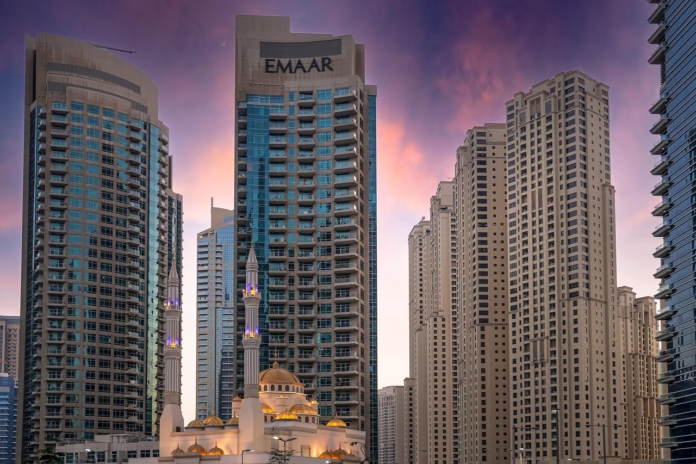His Highness Sheikh Mohammed bin Rashid Al Maktoum, Vice President and Prime Minister of the UAE and Ruler of Dubai, has released a Dubai citizen housing contract dispute that is focused on effective resolution of disputes linked to citizen housing contracts.
January 1st, 2026, is the effective date of the law. It introduces a strong legal structure that ensures swift resolution without affecting the housing projects. In addition, it is a strategic move to boost social stability and citizen satisfaction.
Why Dubai Citizen Housing Contract Dispute Law Matters: A Game-Changer for Housing Development

This law establishes an Alternative Dispute Resolution (ADR) that is focused on the following parameters:
- Protecting the rights of all parties involved in housing construction projects.
- Promoting amicable and consensual settlements.
- Streamlining the process of conflict resolution to maintain construction timelines.
- Ensuring continuity of projects even during contractual disagreements.
This law also prevents delay that might happen due to unresolved disputes. Therefore, it contributes directly to the broader vision of the UAE to ensure citizens’ well-being and social security. In addition, it also ensures the sustainability of the housing infrastructure.
Key Features of the Law: Speed, Fairness, and Efficiency
A specialized branch will be developed under the centre of the Dubai Court for Amicable Settlement of Disputes to manage these conflicts. Notably, this body will exclusively handle the issues related to the execution of the housing contract. We suggest that you read the following points to learn the whole process:
- Mediation first
Initially, all cases are going to go through mediation within 20 days. Remember, you can extend this period to 40 days with mutual agreement.
- Committee Adjudication
If the mediation fails, a three-member committee will make a ruling within 30 days. However, this committee will include one judge and two industry specialists. Similar to mediation, it can also be extended for another 30 days.
- Right to appeal
At last, both parties can appeal the decision of the committee to the court of first instance within 30 days of the ruling.
This tiered and time-bound process will reduce the legal bottleneck and increase the project efficiency. In addition, it will benefit citizens and contractors.
Expert Insights: Leaders React to the Law
Engineer Marwan Ahmed bin Ghalita, Director General of Dubai Municipality, stated, “It shows a broader step in empowering the contractual framework between citizens, consultants, and contractors. It supports the long-term sustainability of housing projects and gives a structured tool to manage conflicts that arise.” He further shared that it is going to boost citizens’ satisfaction and promote a comfortable and stable living environment for families.
Prof. Abdullah Saif Al Sabousi, Secretary-General of the Dubai Judicial Council, noted, “This law is a valuable addition to the judiciary system of Dubai. It highlights our commitment to efficient and fair resolution without immediate litigation. It is an advanced model that ensures the housing rights of the citizen are protected.
He also praised the establishment of a dedicated branch with highly qualified mediators, which shows the focus of the government on the excellence of the public service.
Implications for Residents and the Construction Industry
This legal reform shows the forward-thinking governance and commitment of Dubai to citizen-centric policies. In addition, it is especially important for the following:
- Citizens who are developing new homes under the government scheme because it offers them legal protection and peace of mind.
- Contractors and consultants who now operate under a transparent framework that ensures trust and continuity in business relationships.
- Judicial bodies because they get a streamlined and efficient model to decrease the caseload and boost the ADR culture.
Read more:
Dubai First Home initiative to turn the residents into property buyers




excellent submit, very informative. I ponder why the other specialists of this sector do not realize this. You should continue your writing. I’m confident, you have a great readers’ base already!